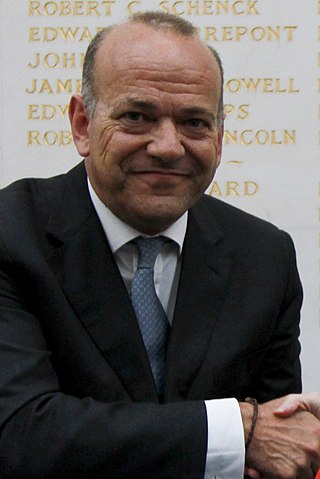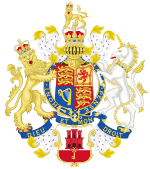
Abortion in the United Kingdom is de facto available under the terms of the Abortion Act 1967 in Great Britain and the Abortion (No.2) Regulations 2020 in Northern Ireland. The procurement of an abortion remains a criminal offence in Great Britain under the Offences Against the Person Act 1861, although the Abortion Act provides a legal defence for both the pregnant woman and her doctor in certain cases. Although a number of abortions did take place before the 1967 Act, there have been around 10 million abortions in the United Kingdom. Around 200,000 abortions are carried out in England and Wales each year and just under 14,000 in Scotland; the most common reason cited under the ICD-10 classification system for around 98% of all abortions is "risk to woman's mental health."
Abortion in Ireland is regulated by the Health Act 2018. Abortion is permitted in Ireland during the first twelve weeks of pregnancy, and later in cases where the pregnant woman's life or health is at risk, or in the cases of a fatal foetal abnormality. Abortion services commenced on 1 January 2019, following its legalisation by the aforementioned Act, which became law on 20 December 2018. Previously, the 8th Constitutional Amendment had given the life of the unborn foetus the same value as that of its mother, but the 36th constitutional amendment, approved by referendum in May 2018, replaced this with a clause permitting the Oireachtas (parliament) to legislate for the termination of pregnancies.

The Gibraltar Socialist Labour Party (GSLP) is a social-democratic political party in Gibraltar. The GSLP is the oldest surviving active political party in Gibraltar. Its roots are based in the trade union movement, as its founder and former leader Joe Bossano was the District Officer of the Transport and General Workers Union (TGWU). The party has been led since 2011 by Fabian Picardo, who has served as Chief Minister of Gibraltar since the 2011 general election. The GSLP forms the GSLP–Liberal Alliance in partnership with the Liberal Party of Gibraltar.

Gibraltar elects on the national level a legislature. The Gibraltar Parliament has 17 members, all elected for a four-year term in one constituency with each voter getting to vote for their selection of ten candidates. Gibraltar forms a single constituency but voters have only ten votes. Hence the electoral bloc with the most votes will normally get ten seats and the runners up seven.

The Abortion Act 1967 is an act of the Parliament of the United Kingdom that legalised abortion in Great Britain on certain grounds by registered practitioners, and regulated the tax-paid provision of such medical practices through the National Health Service (NHS).

General elections were held in Gibraltar on 11 October 2007. The incumbent Chief Minister Peter Caruana narrowly won a fourth term, but opposition leader Joe Bossano had a very strong showing. Joe Bossano noted that this would be his last term as an MP, and joked that he would not join the government, despite receiving a higher personal vote than some members of the Gibraltar Social Democrats (GSD).

Lesbian, gay, bisexual and transgender (LGBT) rights have evolved significantly in the past decades in the British Overseas Territory of Gibraltar. Same-sex sexual activity has been legal since 1993 and the age of consent was equalised to 16 in 2012. The Supreme Court of Gibraltar ruled in April 2013 that same-sex couples have the right to adopt. Civil partnerships have been available to both same-sex and opposite-sex couples since March 2014, and in October 2016, Gibraltar voted to legalise same-sex marriage with the Civil Marriage Amendment Act 2016 passing unanimously in Parliament. The law received royal assent on 1 November and took effect on 15 December 2016.

Keith Azopardi is a Gibraltarian lawyer and politician serving as Leader of the Opposition and Leader of the Gibraltar Social Democrats since 2017.
The Hon. Paul John Balban is a former Gibraltarian politician, State Registered Dietitian and former taxi driver. He was first elected to the Gibraltar Parliament at the 2011 general elections and was a Gibraltar Government Minister until 12 October 2023, member of the Gibraltar Socialist Labour Party (GSLP). He is married and has three daughters. On 15 September 2023, he announced that he and fellow party MPs and Ministers, Albert Isola and Samantha Sacramento, would not stand for re-election.

A by-election was held to the Gibraltar Parliament on 4 July 2013 to fill the seat left vacant by the death of Housing Minister Charles Bruzon in April 2013. The Gibraltar Socialist Labour Party (GSLP), Gibraltar Social Democrats (GSD), Progressive Democratic Party (PDP) and an independent contested the by-election. The Liberal Party of Gibraltar who is in alliance and in Government with the GSLP backed the GSLP's candidate.

Albert Joseph Isola is a Gibraltarian barrister and former politician, member of the Gibraltar Socialist Labour Party (GSLP). He was a member of the Gibraltar House of Assembly as part of the Opposition between 1996 and 2000. He later became a Government Minister for Financial Services and Gaming after becoming elected to Parliament in the 2013 by-election. Isola is married and has four children. On 15 September 2023, it was announced that he and fellow party MPs and Ministers, Paul Balban and Samantha Sacramento, would not stand for re-election.
General elections were held in Gibraltar on 26 November 2015 to elect all 17 members to the third Gibraltar Parliament. Chief Minister Fabian Picardo announced the date of the election on Monday 19 October 2015 during a speech on the Gibraltar Broadcasting Corporation.

European Parliament elections were held in the British Overseas Territory of Gibraltar on 23 May 2019. They were held as part of the European Union-wide elections after the date of United Kingdom withdrawal was delayed by the UK government. This was Gibraltar's final participation in a European Parliament election before the withdrawal took place on 31 January 2020.
General elections were held in Gibraltar on 17 October 2019 to elect all 17 members to the fourth Gibraltar Parliament. Chief Minister Fabian Picardo announced the date of the election on Monday 16 September 2019. On September 2019, it was announced that Libs MP and GSLP/Libs Minister, Neil Costa, would not seek re-election and had his candidacy and seat replaced by Vijay Daryanani of the same party.
Same-sex marriage has been legal in Gibraltar since 15 December 2016. A bill for the legalisation of same-sex marriages was approved by the Parliament on 26 October 2016 and received royal assent on 1 November 2016. Gibraltar has also allowed civil partnerships since 28 March 2014.

The European Union (Withdrawal) Act 2019, also known as the Repeal Bill is an Act of the Gibraltar Parliament announced by Chief Minister Fabian Picardo, that transposed directly-applicable European Union law into the law of Gibraltar as part of the UK's exit from the European Union (Brexit). It has the same effect as the similarly named European Union (Withdrawal) Act 2018 in the UK.
Abortion in Gibraltar is allowed up to 12 weeks if the woman's mental or physical health is at risk. Gibraltar also allows abortion later if the woman's life is at risk, to prevent "grave permanent" mental or physical injury, or there is a fatal fetal abnormality.
Lesbianism in Gibraltar became legal in 1992.

The Abortion Legislation Act 2020 is an Act of Parliament in New Zealand allowing unrestricted access to abortion within the first 20 weeks of pregnancy, and repealing sections of the Crimes Act 1961 related to unlawful abortion. After the 20-week period, women seeking an abortion must consult a qualified health practitioner who will assess their physical health, mental health, and well-being. The Act also provides provisions for conscientious objection rights for medical practitioners and exempts abortion services from certain Crimes Act provisions, while extending the definition of health services to include abortion services under the Health and Disability Commissioner Act 1994.
General elections were held in Gibraltar on 12 October 2023 to elect all 17 members of the fifth Gibraltar Parliament. This was the first election in Gibraltar's history to use an electronic voting count system. The GSLP–Liberal Alliance secured a fourth term in office, though it saw its majority reduced to one seat, whilst the GSD became the sole opposition party, gaining two seats.









